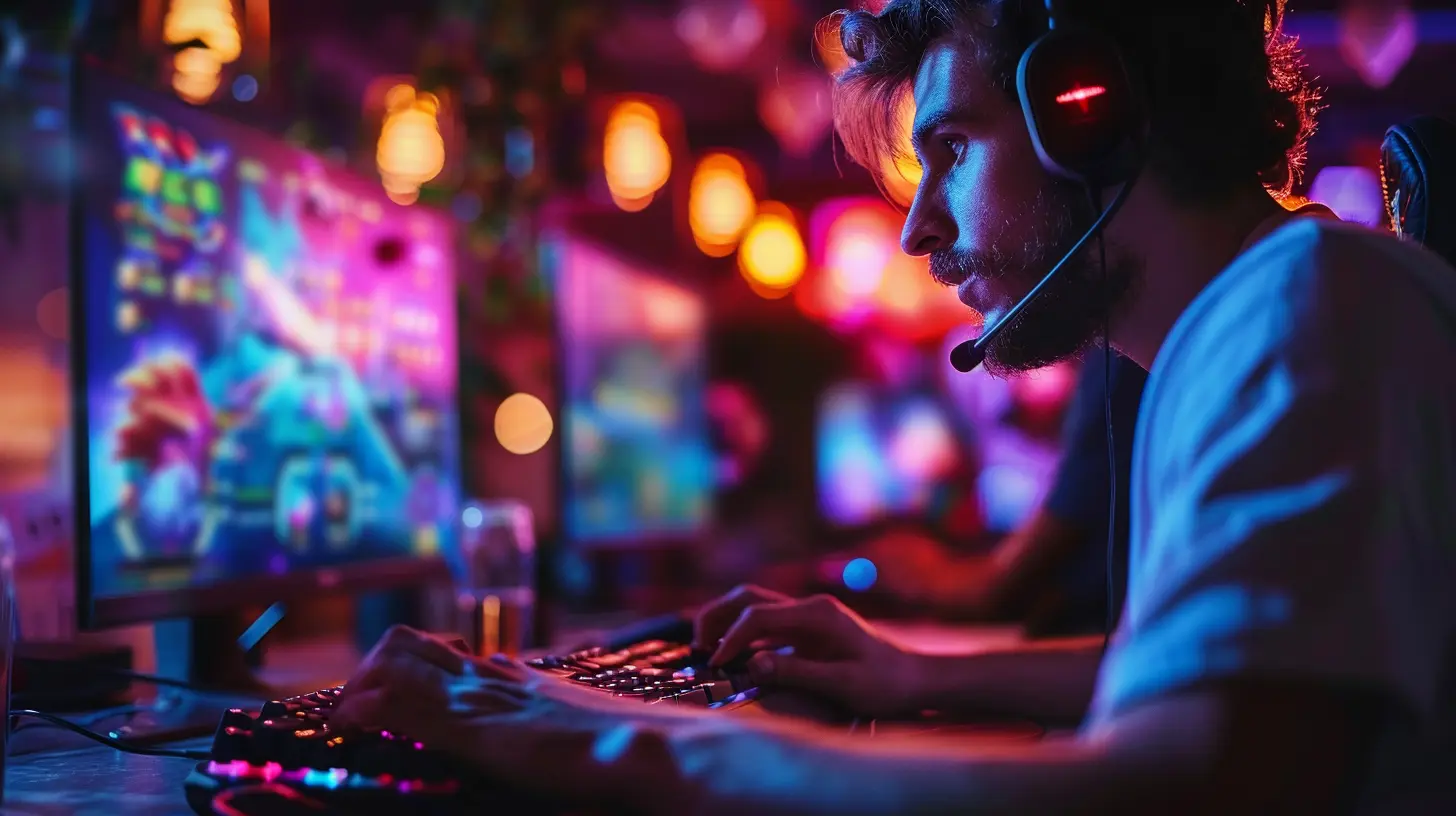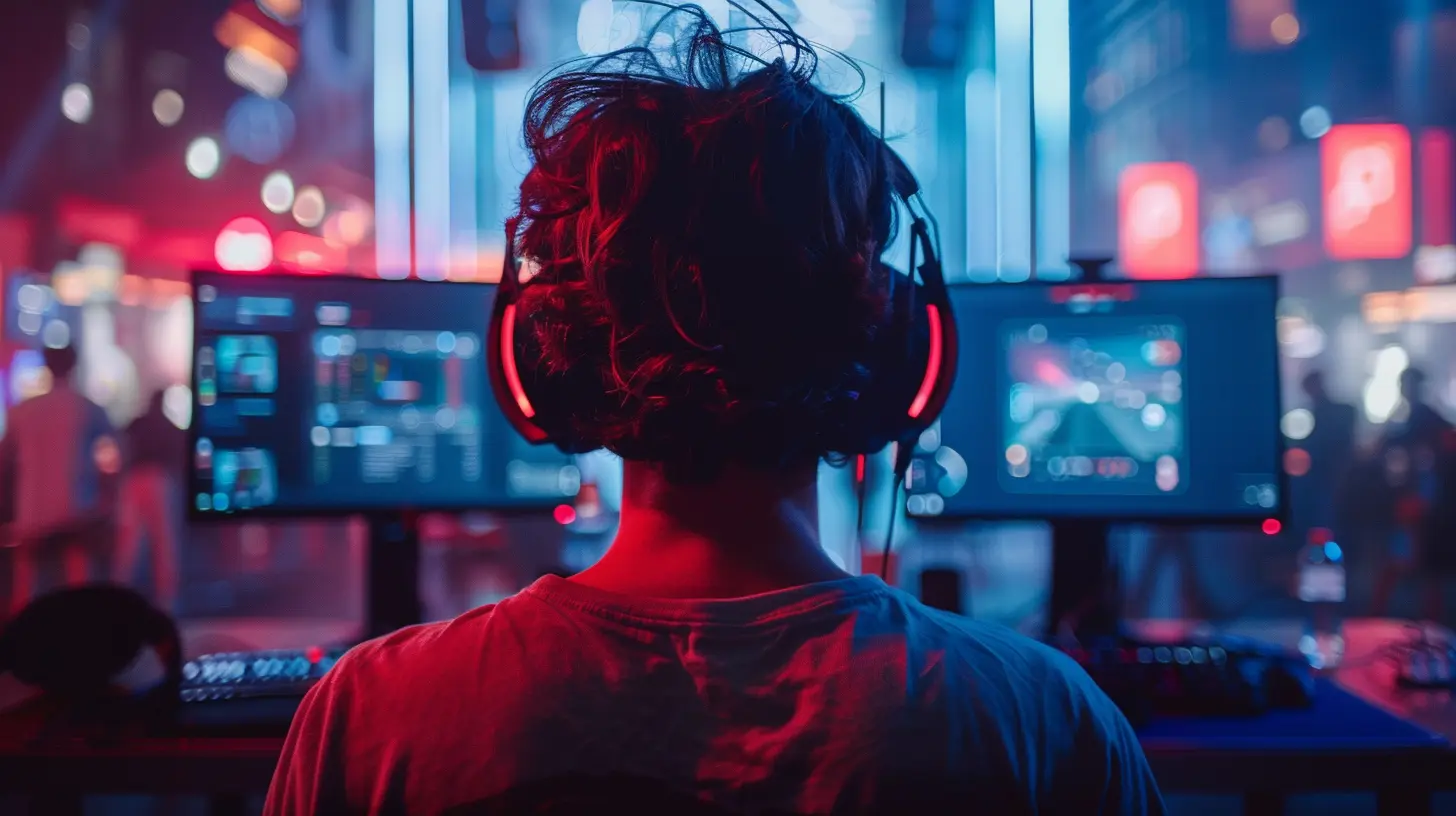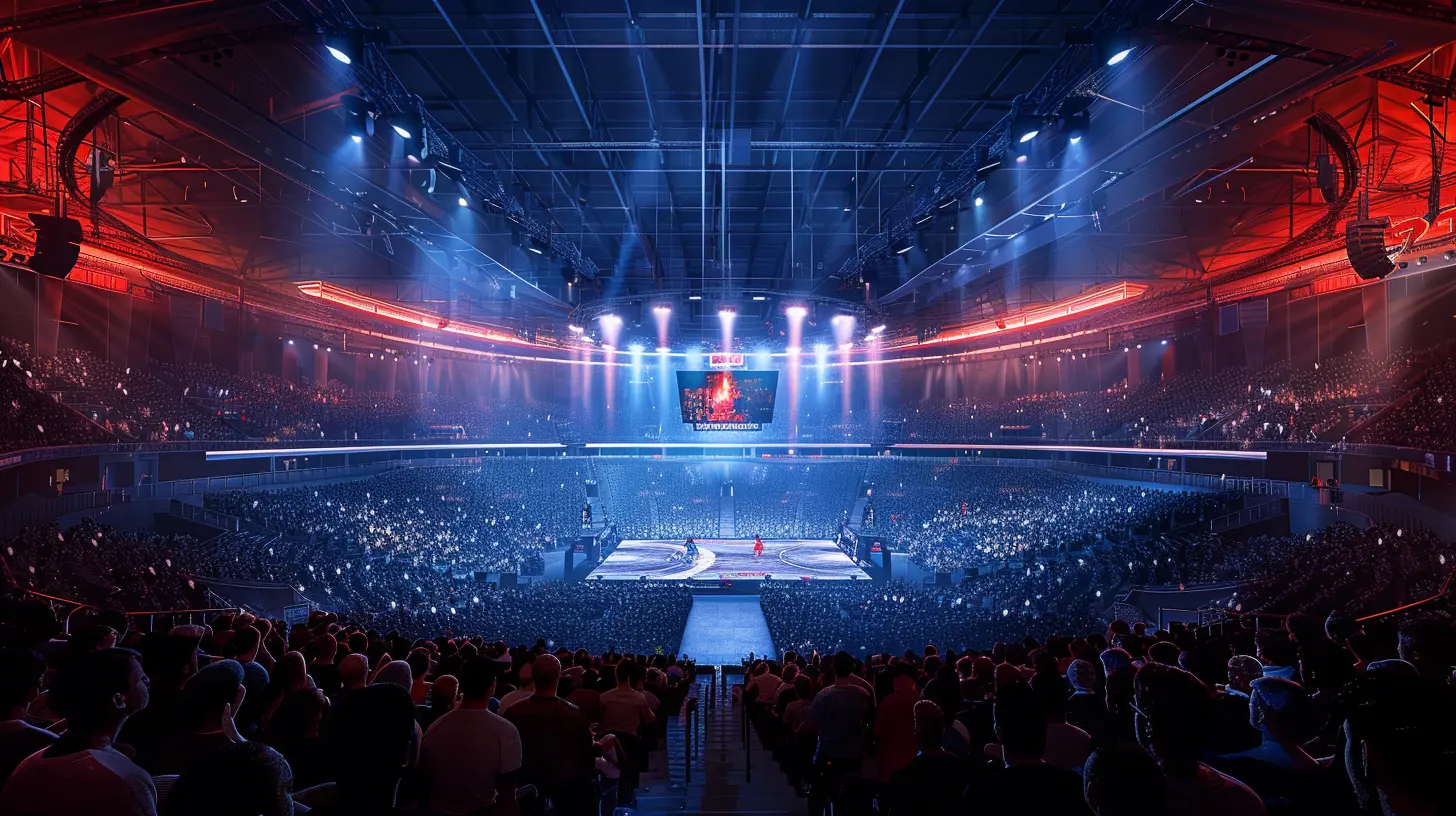How E-Sports Organizations Are Shaping the Future of Digital Sports
23 June 2025
Let’s face it — e-sports isn’t just a niche for hardcore gamers anymore. It’s a global phenomenon, a billion-dollar industry, and—believe it or not—the future of competitive sports is going digital. Behind every championship-winning team, high-octane tournament, and viral gaming moment, there’s an e-sports organization pulling the strings, making the plays, and investing big in what’s arguably one of the fastest-growing sectors in entertainment today.
So, what’s really going on behind the scenes? How exactly are e-sports organizations shaping the future of digital sports, and why should you even care if you’re not a pro gamer?
Well, buckle up. We're diving deep into the world of e-sports orgs and how they’re doing a heck of a lot more than sponsoring players and slapping logos on jerseys.
The Rise of E-Sports: More Than Just Games
E-sports didn’t just pop up overnight. It’s been a slow burn for decades—starting from the earliest days of LAN parties and arcade tournaments. But the explosion happened when streaming platforms like Twitch and YouTube Gaming entered the picture. Suddenly, watching someone else play a game became just as exciting (if not more so) than traditional sports.Organizations saw an opportunity. And like any smart business, they jumped in with both feet.
These e-sports orgs began managing players, building teams, organizing events, and—more importantly—creating brands that fans could rally behind. Think of FaZe Clan, T1, 100 Thieves, Cloud9—these aren’t just teams, they’re global brands.
The Backbone of Competitive Gaming: What Do E-Sports Organizations Actually Do?
You might wonder, “What does an e-sports org even do other than sign players?” Fair question. Here's the lowdown.1. Recruitment and Talent Development
E-sports isn’t just about raw talent. It’s about nurturing it. Organizations scout players, often as young as 14 or 15, based on their ranked performance or content popularity. Once part of a team, these players get access to coaching, analysts, mental health resources, and training regimens that rival traditional sports.These orgs are building the next generation of digital athletes.
2. Content Creation and Branding
This part’s huge. E-sports orgs aren’t just playing games—they’re content machines. They run YouTube channels, TikTok pages, livestreams, and more. Why? Because content builds community, and community builds loyalty.Ever watched a behind-the-scenes video of a team boot camp? Or maybe a vlog from a player’s daily life? That’s all strategic branding, and it’s working like a charm.
3. Partnerships and Sponsorships
Let’s talk money. Gatorade, Red Bull, Nike, Gucci—they’re all investing in e-sports. Why? Because e-sports orgs attract the most coveted demographic: young, tech-savvy, and hyper-engaged audiences.E-sports orgs act as bridges between players and brands, creating marketing campaigns, merch lines, and in some cases, full-scale product collaborations.
Leveling Up the Industry: E-Sports Organizations as Industry Architects
E-sports orgs aren’t just passengers on this wild ride. They’re driving the dang bus. Here’s how they’re changing the game (pun totally intended):Shaping E-Sports Infrastructure
Before orgs came in, competitive gaming was kind of a free-for-all. No structure, no support. Now? We’ve got leagues, tournaments with million-dollar prize pools, and standardized rules—thanks to the backing and pressure e-sports orgs put on the industry.They’re investing in training facilities, boot camps, and even full-blown e-sports arenas. Some teams literally have physical headquarters with gyms, chefs, media studios—you name it.
Making E-Sports a Career, Not a Hobby
There’s an entirely new class of professionals now: streamers, casters, analysts, coaches. E-sports organizations are creating full-time careers in gaming. Not just for players, but for everyone around them.It's not just about winning games anymore; it’s about building sustainable career paths for digital athletes and creators.
Pioneering New Business Models
Traditional sports rely heavily on ticket sales and TV deals. E-sports organizations? They’re inventing new revenue streams—like NFT drops, digital merchandise, exclusive online events, and fan tokens. This is forward-thinking monetization in its prime.
Crossing Over: E-Sports Is Entering The Mainstream
You’ve probably noticed this too—e-sports is becoming a pop culture magnet.Rappers like Drake and Snoop Dogg are investing in e-sports teams. Celebrities wear merch from e-sports orgs. Game tournaments are being broadcasted on ESPN. We've even seen e-sports players on the cover of Sports Illustrated. It's wild.
And guess what? E-sports organizations are the ones making those moves happen.
Bridging Traditional Sports and Digital Sports
We’re now seeing traditional sports teams partnering with or forming their own e-sports arms. The NBA has the NBA 2K League. Soccer clubs like PSG and FC Barcelona have their own e-sports divisions.This crossover appeal is being driven largely by e-sports orgs that understand both the gaming world and the entertainment business. They’re bringing structure, professionalism, and fan engagement strategies borrowed straight from the playbook of the NFL and NBA.
Youth Culture and E-Sports: A Match Made in Cyberspace
Let’s not ignore the obvious: Gen Z lives online. They don’t just consume content—they create and interact with it 24/7.E-sports orgs have tapped into this like pros.
They’re not just competing in games—they're creating viral memes, launching fashion lines, hosting podcasts, and collaborating with streetwear brands. They’re giving young fans a lifestyle to buy into, not just a team to root for.
Think Beyond Gaming
Many of the most successful e-sports organizations aren’t focused solely on gaming anymore. Take 100 Thieves for example. They call themselves a lifestyle brand. Gaming is just one part of their identity. Apparel drops, music collabs, streaming content—it’s all part of a larger ecosystem.This shift shows us something big: e-sports organizations are evolving beyond digital sports. They're becoming culture creators.
The Tech Game: E-Sports Driving Innovation
Here’s something super cool—e-sports orgs are also innovating on the tech front.Data and Analytics
Just like in the NFL, performance data is a goldmine. E-sports orgs use sophisticated analytics tools to track player performance, reaction times, decision-making patterns, and so much more. It’s all about squeezing every competitive edge possible.Virtual Reality and the Metaverse
Some orgs are experimenting with VR training and even creating metaverse-style clubhouses where fans can interact in real time. This isn’t sci-fi anymore—it’s happening now.By embracing new tech, these organizations aren’t just keeping up—they’re pushing the boundaries of what digital sports can be.
Challenges and Growing Pains (Yep, They're Real)
Let’s keep it real—it’s not all smooth sailing.The e-sports industry has seen its share of scandals, poor management, financial instability, and toxic communities. Burnout among players is a real issue too. With the industry growing faster than anyone expected, some orgs are struggling to keep up.
But here’s what’s promising—e-sports organizations are learning fast. They’re investing in player wellness, improving transparency, and creating more inclusive spaces. Long story short: they're evolving, just like the rest of the industry.
What’s Next for Digital Sports?
So, what does the future hold?It’s pretty safe to say we’re heading toward a world where e-sports and traditional sports co-exist. Maybe even merge in some ways. Imagine a hybrid Olympic event with both track & field and League of Legends. Sounds crazy? It’s already being discussed.
As VR and AR continue to improve, we might even see digital sports that blur the lines between physical and virtual competition. And guess who'll be leading that charge?
Yep. E-sports organizations.
They’re not just following the trends—they're setting them.
Final Thoughts
E-sports organizations are doing way more than managing gaming teams. They’re shaping the future of how we compete, watch, and connect digitally.They're building careers, launching brands, pushing technology, and creating a whole new entertainment ecosystem while they're at it.
So whether you're a casual gamer, a die-hard e-sports fan, or someone still trying to figure out what a “GG” means, one thing’s clear: e-sports organizations are changing the game. Literally.
And the future? It's digital, competitive, and driven by passion—just the way we like it.
all images in this post were generated using AI tools
Category:
E SportsAuthor:

Luke Baker
Discussion
rate this article
2 comments
Deborah McHugh
Great article! E-sports organizations are truly revolutionizing digital sports, fostering community and innovation. It's exciting to see how they are shaping the future of competitive gaming and inspiring emerging talent.
August 7, 2025 at 3:25 PM

Luke Baker
Thank you! I'm glad you enjoyed the article and share the excitement about the impact of e-sports organizations on the future of digital sports!
Regina McNab
This article brilliantly highlights the transformative role of e-sports organizations in shaping digital sports. Their innovative approaches are not just redefining competition but also fostering community and inclusivity. As technology and talent converge, the future looks incredibly bright for gamers and fans alike. Exciting times ahead!
June 30, 2025 at 2:45 AM

Luke Baker
Thank you! I'm glad you enjoyed the article and agree on the exciting potential of e-sports to foster community and redefine competition. The future is indeed bright!

